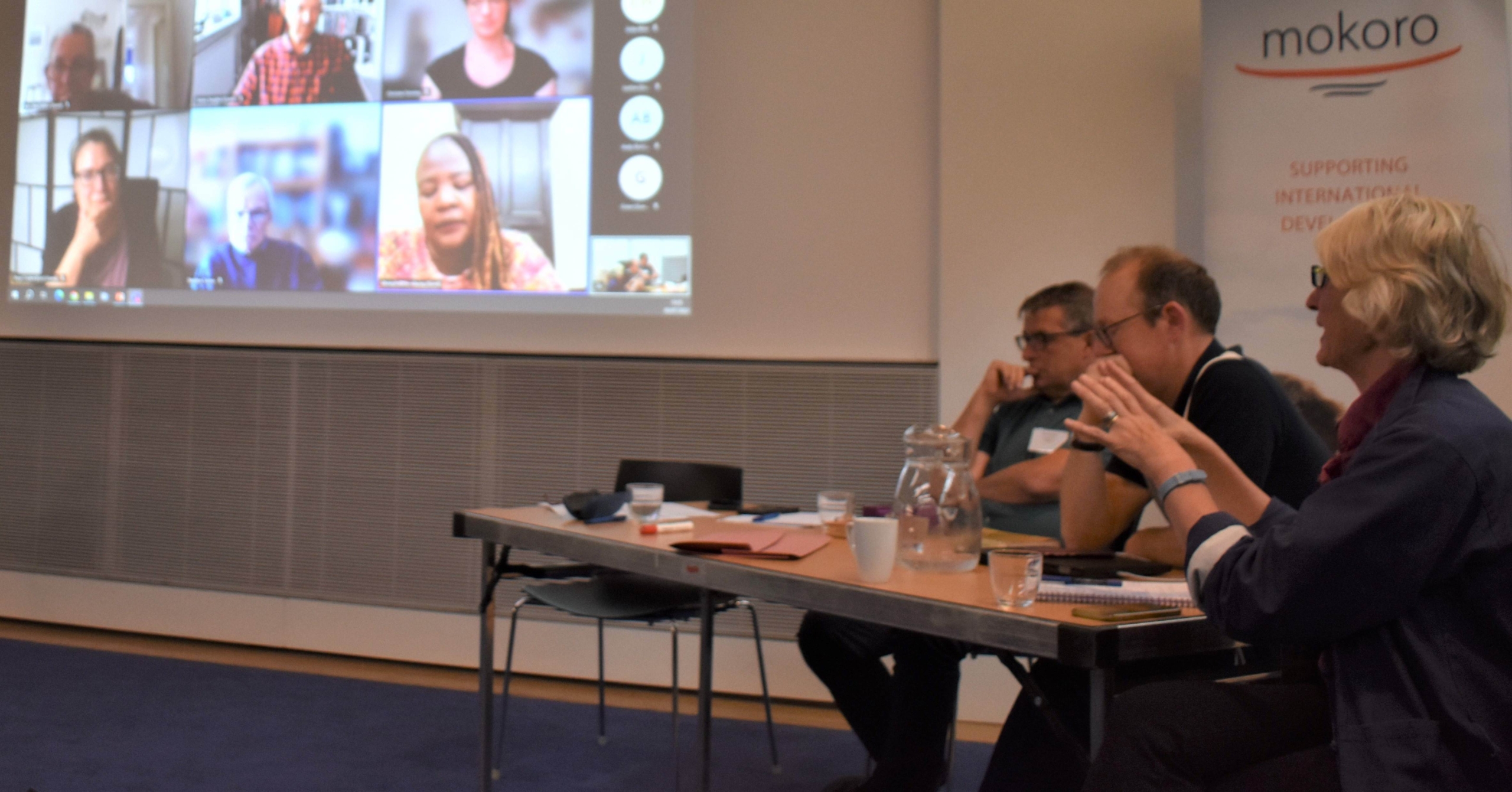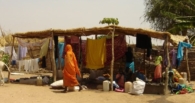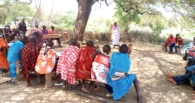Scaling out and over time for more inclusive land governance
Elizabeth Daley
11 July 2023
/
- 0 Comments
Rather than scaling up, I think we should be talking about scaling out and scaling over time when it comes to inclusive, community-led land governance. I tried these ideas out with some success two weeks ago at the annual LANDac Conference in the Netherlands, specifically during a Round Table which asked “(how) can we scale bottom-up or community-based initiatives towards fair and inclusive land governance”?
This is a question we have been discussing in the WOLTS project team over the last couple of years of our now 7-year collaboration with local NGOs and pastoral communities in Mongolia and Tanzania. The aim of the WOLTS project is to use iterative, community-led action research techniques to strengthen community, civil society and local government capacity to protect the land rights of all vulnerable people.
A key feature of the project is the involvement of the communities in selecting men and women for intensive training as ‘gender and land champions’. These champions are evolving into highly effective advocates and leaders, not only on land issues, but on broader change in gendered social norms. They have also started working independently of WOLTS, including by sharing their ideas with other communities and fostering sustainable, long-term change down the generations.
——–
WOLTS began in October 2015, developing and piloting a participatory approach to improving land governance in mining-affected pastoralist communities in Mongolia and Tanzania, in partnership with colleagues from Mokoro (UK), HakiMadini (Tanzania) and PCC (Mongolia).
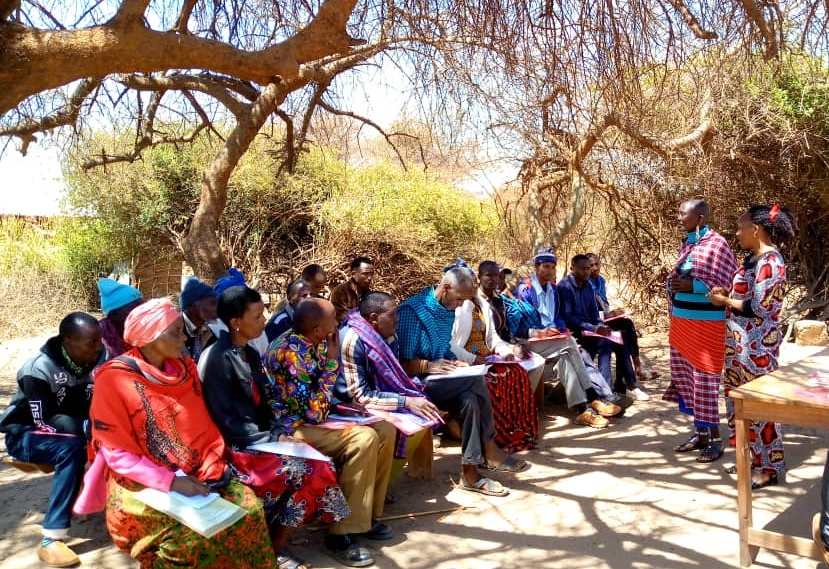
© WOLTS Team
At the beginning we did extensive baseline surveys and participatory fieldwork, applying action research principles, triangulating our findings with the communities and allowing them to guide us, ultimately developing a community-driven gender and land champions training programme. The programme included legal training, built confidence through practice in public speaking in meetings and made extensive use of methods such as role-plays where gender roles were often reversed, with highly impactful results. Over time these interactions allowed issues like gender-based violence and sexual exploitation to surface. A core principle of the project was to include women and men together from the outset, rather than to focus on women alone.
After about five years, WOLTS was already delivering real results. In the pilot communities where gender and land champions training took place, women’s participation in land governance and community decision-making significantly increased in a relatively short time. We also saw impacts on social norms around gender-based violence and women’s economic empowerment.
For example, in Tanzania we saw men champions taking women to speak at traditionally men-only meetings and supporting women to apply for land in her own name. At the same time women champions gained in confidence and began supporting other women.
In Mongolia, women and men champions worked together, mobilising their communities to protect pastureland. A peaceful demonstration by herders led by WOLTS champions gained national political attention and saw the President taking action to ensure mining companies in their area fulfilled their legal obligations.
By empowering both men and women, WOLTS builds capacity and local ownership. We are seeing the development of a sustainable approach to securing land rights and challenging gendered social norms.
In October 2021, we embarked on an extended period of dissemination. We did this by elevating the voices of the champions as the leaders of the dissemination process – highly unusual in this sector. This turned out to be as important as the previous work in building critical mass for sustainable locally-driven change.
——–
Historically, when looking for ways to improve land governance, donors have tended to prioritise large-scale administive reforms such as land titling and registration, in part due to the perceived ease of identifiying and generating rapid, quantifiable results. Scaling in this context is equated with scaling up and is primarily a numbers game – how many parcels mapped, how many land titles registered, how many public awareness meetings held, how many women’s names on land titles etc. There is certainly a logic to this, and an important place for the projects focused in this way.
However I believe that if we want the most value for money in our investments in land governance, we should be open to new ways of looking at scaling.
What I call the ‘business as usual’ approach described above is beset by two well known and documented sets of problems. The first surrounds ‘non-elites’, including most women, all vulnerable people, and anyone with indirect or use rights, or communal land rights – such as rights of way, rights to products on the land, shared grazing rights etc. The second set of problems concerns what happens over time – the issue of land registration records not being updated to reflect land transactions and transfers taking place on the ground, following sales, leasing, inheritance etc.
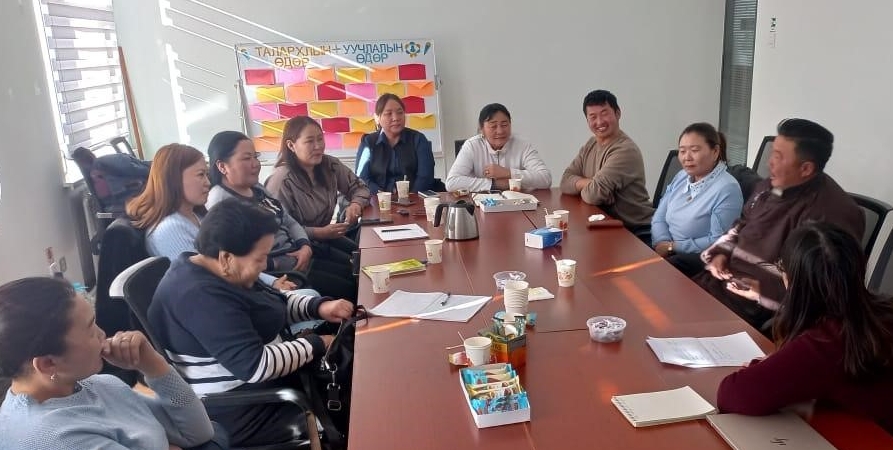
© WOLTS Team
Over the past couple of years, as we have focused more intensively on disseminating the WOLTS experience and elevating the voices of the champions, I have come to realise the importance of thinking through how to scale social norm changes for improved land governance. This means thinking about how to scale attitudinal changes at local levels to support broader land administration or land registration initiatives. It also means thinking about how to change the underlying structures and processes in communities that influence how decisions are made about land rights and land use.
In our dissemination work, we worked closely with the champions to decide who the audiences were, what messages should be disseminated and how this should be done. The champions took part in the dissemination, for example champions in Tanzania visited other mining-affected villages to share their experiences, and champions in Mongolia met with senior government experts on land at the national level.
We have clearly seen – as recounted in our most recent WOLTS report (May 2023) – that after a certain initial project investment, our WOLTS approach has taken a life of its own, critical mass has developed and the sorts of changes in gendered social norms that we have seen in a relatively short time frame (5-7 years) are snowballing in and around the pilot communities where we have concentrated our efforts.
——–
This leads us to think about scaling in two different ways – both of which are sustainable and locally-driven.
The first is scaling out from a community where a critical mass of gendered social norm change has been reached through a successful project intervention.
After the initial investment of action research and champions training, carried out in partnership between civil society, local government and the local community members, gendered social norm changes take place that filter throughout the community and beyond, becoming visible to neighbouring communities and outsiders who visit, and inspiring them also to change their own attitudes.
In Tanzania, for example, we saw men traditional leaders wanting to emulate their peers who are WOLTS-trained gender and land champions. This means, when they see those other traditional leaders helping female family members and other women to get land in their community, the non-WOLTS-trained traditional leaders are becoming inspired to do the same.
I would suggest that this kind of independent scaling is unlikely to take place in a land administration reform programme – even if it is ‘fit-for-purpose’ – because it reflects a genuine locally-driven change in attitudes, rather than a change in technologies or government laws which is top down by its very nature.
The second way is scaling over time where the critical mass has been achieved.
This involves thinking about growth through attitudinal change over time – scaling change down the generations. As one member of a family becomes a gender and land champion, their households and extended families see those changes and (hopefully) adopt them and pass them on down the line. Children adopt their parents’ examples and take them into their marriages and pass them onto their own children. Etc.
I would suggest that, as it is harder to change attitudes backwards than forwards, this type of scaling has a built-in self-perpetuation mechanism. I would also suggest that with this kind of scaling nothing falls apart – unlike with land titling and registration projects where the records break down over time if they are not kept up to date after land transfers and transactions.
——–
My conclusion is that, while ‘business as usual’ and more conventional scaling up remain important, scaling for sustainable long-term change requires commitment from donors to new interpretations of scaling, to match the kind of commitment and demand from communities that we have seen through WOLTS. In particular, it requires commitment from donors to support work to change attitudes and gendered social norms around land governance that is essential for any ‘business as usual’ land administration reform programme to have real long-term impact.
We have found in WOLTS, based on our intensive work in these pilot communities, that the champions and their communities do not just want to be given pieces of paper but also want knowledge and skills and confidence to lead themselves into stronger and more inclusive land governance that protects the land rights of the whole community. Scaling out and over time then develop their own momentum once the initial critical mass has kicked in. I would contend that this approach can lead to much more impactful results in the medium-to-long term than the rather more technocratic approaches that donors often favour.
Dr. Elizabeth Daley is Team Leader of the global WOLTS project and a Principal Consultant with Mokoro Ltd, a UK-based not-for-profit organisation; she also volunteers independently as Chair of the Land Portal Foundation. For more information on WOLTS and access to research reports and publications, please visit http://mokoro.co.uk/project/womens-land-tenure-security-project-wolts/
Download the article here

